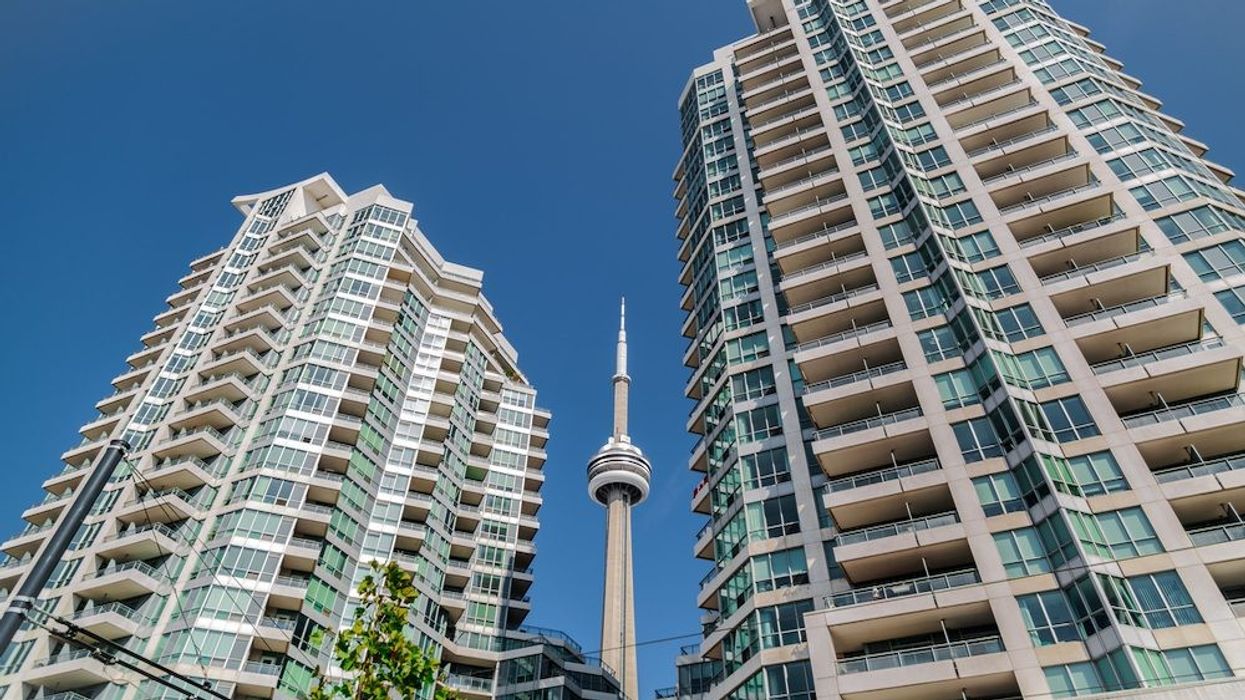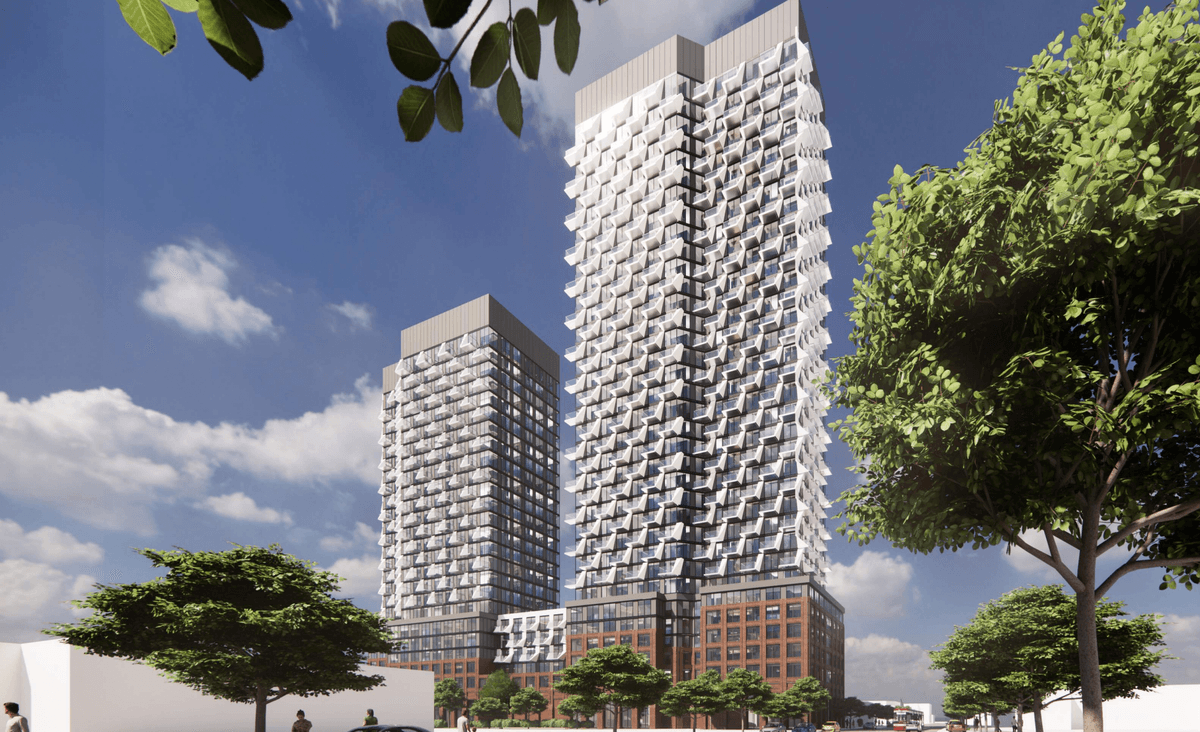The Landlord Tenant Board (LTB) was backlogged even before the COVID-19 pandemic impelled Ontario’s government to implement an eviction freeze -- and it’s only gotten worse since then.
The provincial government recently announced that it will spend $19M over three years to alleviate backlogs at both the LTB, which has grown from an estimated four months at the beginning of 2020 to around seven months today, and the Ontario Land Tribunal (OLT).
But the LTB’s hearings backlog is the least of its problems, according to Alex Balikoti.
“It’s a broken system,” the head of the Balikoti Real Estate Group at RE/MAX Ultimate Realty, said. “It should be taken down altogether and rebuilt because it’s beyond repair now. It needs to be completely rethought and reinvented according to the realities we have right now with numerous small landlords.”
A major complaint is that landlords whose tenants refuse to pay rent must go through the traditional process of being granted a hearing at which both parties must be present. However, professional tenants know how to game the system and they come up with any host of excuses for being unable to attend, from claiming they and their representatives aren’t yet ready to being sick that day.
“If you encounter a person who wants to use and abuse the system, they will make sure the process drags on for about a year by appealing any rulings and not showing up to the hearings,” Balikoti said.
Paul D’Abruzzo, an investor and broker with Rock Star Real Estate, has clients waiting to receive hearings at the LTB -- “90% of them are for rent not being paid,” he said, adding that the LTB needs to be disbanded and rebuilt.
“We have probably the most inefficient system in the whole country, and one that’s extremely tenant-biased,” he continued. “I’m not suggesting we should have one that’s landlord-biased; I’m suggesting we should have one that’s fair, where issues are dealt with appropriately, quickly, and where the rules are fair for everyone. If you don’t pay your rent, you either pay or you've got to leave. If you’re a bad landlord and you don’t take care of your property, there should be repercussions for that.
“A lot of landlords are small landlords and spend a lot of money to buy these properties and take care of them. They provide the lion’s share of inventory for tenants and are mistreated by the system. The system makes it look like it’s the landlord versus tenant, tenant versus landlord, but that’s not the case. Most people just want to move on and live their lives in peace. It’s the way the system is set up that causes all the friction and that’s the unfortunate part. The system is the problem, not the landlord and not the tenant.”
Investments in the LTB and OLT will, among other things, increase the number of full- and part-time adjudicators and case processors, and improve IT platforms for online servicing.
“Ontarians deserve the opportunity to find the right home for them, and government bureaucracy should never stand in the way,” Attorney General Doug Downey said in a press release. “We are making even more investments in the Ontario Land Tribunal and the Landlord and Tenant Board to help clear longstanding backlogs and drive faster decisions so we can get more shovels in the ground.”
In a return email to STOREYS, Tribunals Ontario Spokesperson Janet Deline says LTB adjudicators “are appointed using an open, merit-based recruitment process,” before which they’re subjected to extensive vetting, all in an effort to mitigate bias.
“Once appointed, these highly skilled, impartial adjudicators are subject to Conflict of Interest Rules and must complete extensive and ongoing training respecting both the Residential Tenancies Act, 2006 and the need to conduct hearings in a fair and impartial manner in accordance with the requirements of procedural fairness,” read Deline’s email.
As for the backlog, which Deline acknowledged is problematic for landlords and tenants alike, she says the LTB has invested in a digital-first approach, although it will still retain its in-person hearing system, as per the Ontario Human Rights Code.
“We have recently implemented a new case management system with the goal of reducing delays and streamlining the dispute resolution process,” read Deline’s email. “The Tribunals Ontario Portal will transform how users engage with tribunals, including the LTB, by giving users the ability to seamlessly file and manage their cases online. It will also encourage resolution of disputes before the hearing, with new features that give parties the ability to connect directly with each other, as well as with mediation services, and come to a resolution.”
The backlog, Balikoti says, is bad news for the larger rental market wherein conditions are tight, especially in the Greater Toronto Area. He surmises that condominium investors, who already have trouble carrying their mortgages with rental income, will decide to invest their money elsewhere rather than deal with vagaries that usually go unpunished.
Balikoti also says that it is illegal to keep a database of professional tenants in the province, although the same is not true for deadbeat landlords, but private Facebook and realtor groups have nevertheless catalogued such tenants, who Balikoti says are very common.
“There are groups out there on social media that are keeping a list of these bad tenants. They use Excel spreadsheets and only share them with people who have been part of the groups for many years, and these lists contain thousands of names. It’s one way for landlords to check background on potential tenants.”
There were 48,422 applications filed with the LTB in 2021 -- down from more than 160,000 over the two previous years -- of which 24,481 were requests to evict tenants who weren’t paying rent. With such massive caseloads, it remains to be seen if the government’s money will relieve the backlog.
But even securing a successful eviction order doesn’t mean much if the tenant appeals, and in the case of the professional tenant who’s gaming the system, they know the appeal hearing will take months.
Since the majority of cases filed by landlords pertain to non-payment of rent, D’Abruzzo would like to see established a separate system in which tenants receive automatic payment orders. A similar system has been proposed, but he isn’t holding his breath.
“There are multiple steps in between, if it ever gets through a hearing where they try to resolve it outside of a hearing. To get things to move faster, they have to remove the backlog,” D’Abruzzo said. “The backlog is self-inflicted because they have stupid, archaic processes.”





















